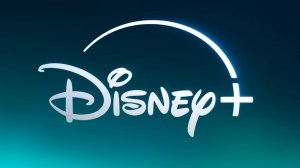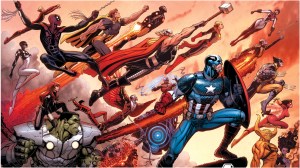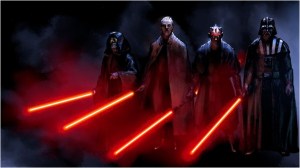If you’ve even passively followed the nerd world in recent years, you’ve probably seen speculation about how the X-Men are going to factor into the Marvel Cinematic Universe. For almost two decades, the film and TV rights to the massive roster of characters were tied up in 20th Century Fox, before the company was ultimately acquired by The Walt Disney Company in 2019. The ink dried on that deal almost exactly a year ago, which has only led to more speculation about the X-Men’s place in the MCU’s expansive canon.
Videos by ComicBook.com
Granted, it still will probably be a few years before we see the team properly folded into the MCU, as there are no X-Men projects announced within the franchise’s “Phase Four” timeline. A handful of properties that were previously under Fox’s X-Men umbrella have been teased to appear in Phase Four’s movies and shows, including S.W.O.R.D. in WandaVision, Madripoor in The Falcon and The Winter Soldier, and Space Sharks in Thor: Love and Thunder, but we will probably still have to wait until at least 2022 or 2023 to see the X-Men officially debut.
But even then — could that still be too early? Given just how much the MCU already has on its plate for the next few years, plus the scope of the X-Men and their adjacent characters, there’s no telling if the franchise will be able to quickly and effectively give the mutants the debut they deserve.
For one thing, the MCU already has a significant amount of characters and lore that it is dealing with, especially going into Phase 4 and beyond. Marvel’s next few years of content currently includes five movie sequels or spinoffs (Black Widow, Doctor Strange in the Multiverse of Madness, Thor: Love and Thunder, Black Panther 2, and Captain Marvel 2), five Disney+ spinoffs (The Falcon and The Winter Soldier, WandaVision, Loki, What If…? and Hawkeye), two new film franchises (The Eternals and Shang-Chi and the Legend of the Ten Rings), and three new Disney+ series (She-Hulk, Ms. Marvel, and Moon Knight). This doesn’t even count projects like Ant-Man 3, Guardians of the Galaxy Vol. 3, and Blade, which are still in their early stages. When you think about all of the characters – both established and new – that are factoring into those properties, it’s a little overwhelming. It also doesn’t necessarily leave room to properly establish how the X-Men exist in the MCU, outside of probably a handful of Easter eggs and references.
There’s also the dilemma of how the X-Men are going to be established within the MCU’s canon, something that has kept Marvel fans up at night basically since the Disney/Fox talks began. Sure, the MCU could theoretically introduce the X-Men at “square one” — with some variation of the original team of Marvel Girl, Cyclops, Beast, Angel, Iceman, and Professor X operating out of a newly-created Xavier’s School for Mutants. But honestly, that would be a disservice to the X-Men as a larger entity, as it would feel too similar to Fox’s attempt at rebooting the team’s canon in the 2010s. It would also mean that, if your favorite character is anyone outside of the core group of essential X-Men (not counting Ryan Reynolds’ Deadpool, who the MCU reportedly has plans for), you’ll probably have to wait years or even decades to see them debut or form relationships with other characters.
To an extent, the X-Men work best when they lean into the multi-generational and wide-ranging roster of characters and interpersonal relationships that they have. This is abundantly clear to anyone who has seen X-Men: The Animated Series, which managed to weave years of established characters and fully-formed backstories into half-hour episodes of a children’s cartoon. More recently, the “Dawn of X” comic reboot has thrown the X-Men on a similar footing, allowing them all to just exist together with the messy backstories, complicated relationships, and time-traveling children that come along with that. While the X-Men roster is at the center of both of those narrative pushes, more teams have been able to pop up on the periphery, including the X-Force, X-Factor, and the New Mutants.
Honestly, an argument could be made that the X-Men and their adjacent characters are enough to sustain a separate cinematic universe (something that could have easily happened at Fox, if the franchise hadn’t continued to largely spin its wheels and default to “Professor X and Magneto yell at each other again”). But now that the X-Men are set to exist within the larger MCU, there’s a lot that still needs to be done to do them justice. Regardless of however you think the X-Men’s existence will be explained – whether they existed all along, came up in the five years between Avengers: Infinity War or Avengers: Endgame, or have been conveniently tucked away in a quantum city or a corner of the multiverse – their arrival is something that needs to be handled significantly. Introducing the X-Men will completely shift the structure of the MCU for years to come, but let’s just hope that it doesn’t lose sight of what makes their corner of Marvel Comics so great.








